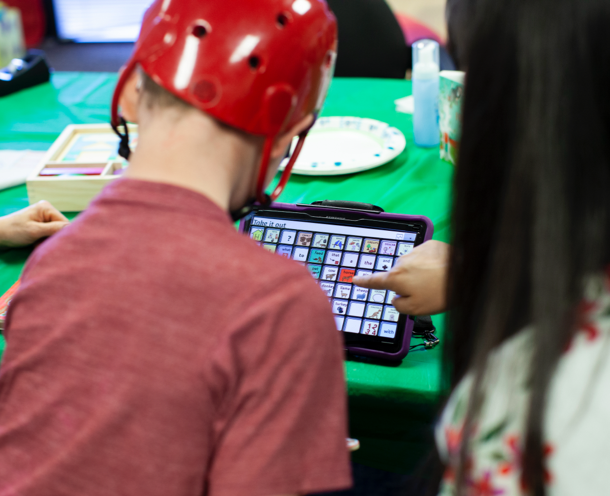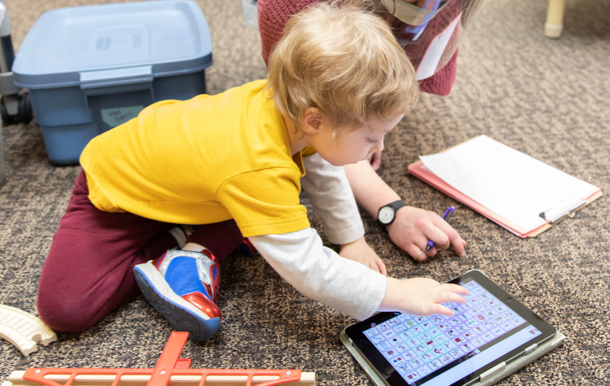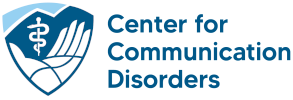Augmentative and Alternative Communication (AAC) includes all the strategies a person uses to communicate without talking.

Understanding Augmentative and Alternative Communication (AAC)
Augmentative and Alternative Communication (AAC) includes all the strategies a person uses to communicate feelings and thoughts without talking. AAC ranges from gestures such as facial expressions, apps on an iPad, American Sign Language, or a dedicated communication system using words or symbols to communicate meaning.
AAC can be used some of the time to supplement speech skills or all of the time by individuals who do not have the ability to speak. AAC is used by children, adolescents, and adults. All AAC communication can be personalized to represent the individual user’s needs.
The CCD offers many AAC services
The AAC Summer Camp is held weekly from June to late July every year. The camp focuses on AAC vocabulary, navigation, developing literacy skills, interacting with other AAC users, developing social confidence, social interactions and turn-taking, increasing functional communication, and meeting new friends. To learn more about the camp, please contact the CCD.
AAC Family Support Network
About the Group
The AAC Support Group is available to provide support to the community of caregivers and families of individuals using AAC. We believe that communication is a human right. AAC is someone’s voice. This reflects the power of AAC. We understand that learning to use and accept AAC can be challenging. We aim to provide a forum for discussion, information, and support for the caregivers and families of users of AAC. We want to hear all the voices, including those of the families and caregivers.
This group is for the caregivers and families of individuals using AAC. It is an opportunity to receive support from other caregivers and families, as well as the faculty and graduate students at Rocky Mountain University of Health Professions. This group is inclusive. It does not matter what type of AAC your family member uses whether it be low-tech/no-tech or high-tech.

Group Topics
We plan to support families through discussions and presentations about:
- Understanding different AAC systems
- Support for families and caregivers who are new to AAC
- Integrating AAC into the home and community environments
- Stressors that impact caregivers and families
- How to model with and help users of AAC develop skills
- How to be an advocate for yourself and the user of AAC
- Working with the speech-language pathologist, school, or rehab facility
- Using an AAC in the community
- Practical communication needs—pools, rain, showers, bath time, playgrounds, new people in the environment

How to Join
Connect with us by contacting the CCD or email one of our group advocates. Upon contacting us, we will have you complete an information form to help us identify your AAC system. It does not matter what type of AAC your family member uses whether it be low-tech/no-tech or high-tech.
